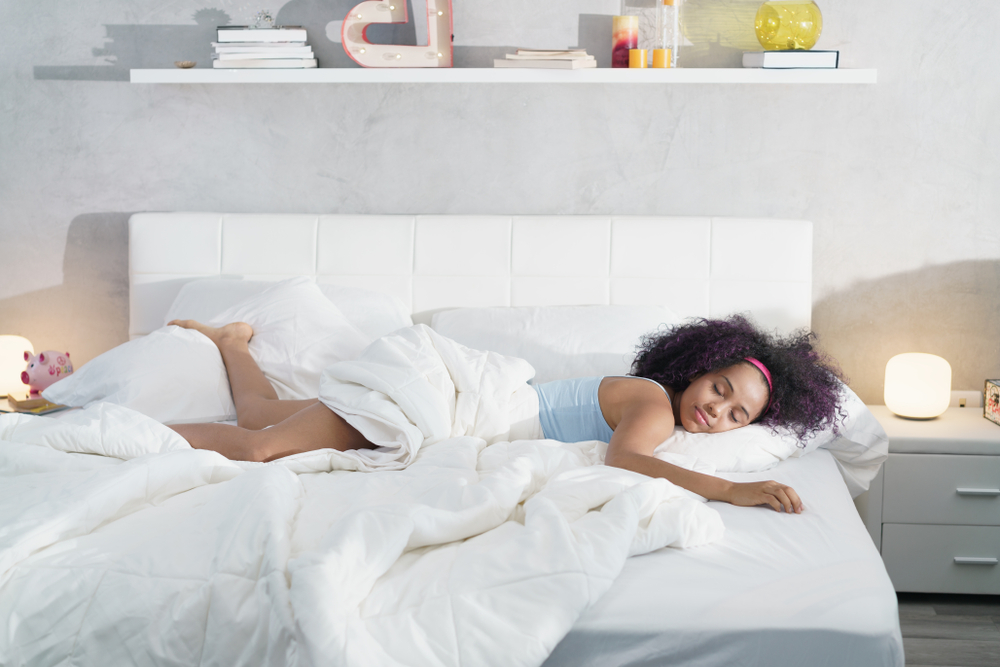Getting a good night’s sleep is crucial for maintaining your overall health and well-being. Despite its importance, many people struggle with insomnia or poor sleep quality due to various factors in their daily routines. Identifying and avoiding certain habits and behaviors can significantly improve your sleep quality and enjoy a more restful night. Here are five things you should avoid to sleep well at night.
Avoid caffeine and nicotine close to bedtime
Caffeine and nicotine are stimulants that can interfere with your ability to fall asleep and stay asleep. Caffeine, found in coffee, tea, chocolate, and some medications, can remain in your system for up to eight hours. This means an afternoon cup of coffee could still affect your sleep at night. Nicotine, found in cigarettes and some e-cigarettes, also stimulates the central nervous system and can disrupt sleep patterns.
Why it matters: Consuming these substances too close to bedtime can increase alertness and reduce the overall quality of sleep. For better sleep, it is advisable to avoid caffeine and nicotine for at least four to six hours before bedtime.
Better alternatives: Instead of reaching for a caffeinated beverage in the evening, opt for herbal teas like chamomile or peppermint, known for their calming effects. Additionally, if you smoke, consider reducing or quitting smoking to enhance your sleep quality and overall health.
Avoid heavy meals and spicy foods before bed.
Eating a large, heavy meal or spicy foods right before bed can cause discomfort and indigestion, making it difficult to fall asleep. When you lie down, the digestive process slows down, which can lead to heartburn and acid reflux. These conditions can disrupt your sleep and leave you feeling uncomfortable throughout the night.
Why it matters: Your body needs time to digest food properly, and eating too close to bedtime can interfere with this process. Spicy foods can increase your body temperature and cause discomfort, making it harder to fall asleep.
Better alternatives: To avoid this, try to have your last meal of the day at least two to three hours before bedtime. Opt for lighter meals that are easier to digest, such as salads, vegetables, and lean proteins. If you’re hungry closer to bedtime, choose a light snack like a banana or a small handful of nuts.
Avoid screens and electronic devices
The blue light emitted by screens from phones, tablets, computers, and televisions can interfere with melatonin production, the hormone that regulates sleep. Exposure to blue light in the evening can trick your brain into thinking it’s still daytime, making it harder to fall asleep.
Why it matters: Melatonin is crucial in signaling your body that it’s time to sleep. Disrupting its production can lead to difficulty falling asleep and reduced sleep quality.
Better alternatives: To improve your sleep, try to turn off electronic devices at least an hour before bed. Instead of scrolling through your phone or watching TV, engage in relaxing activities such as reading a book, taking a warm bath, or practicing meditation. These activities can help signal your body that it’s time to wind down and prepare for sleep.
Avoid irregular sleep schedules
An irregular sleep schedule can confuse your body’s internal clock, making establishing a consistent sleep pattern harder. Going to bed and waking up at different times each day can disrupt your circadian rhythm, which regulates your sleep-wake cycle.
Why it matters: Consistency is key to sleep. Irregular sleep patterns can lead to insomnia and other sleep disorders, making it difficult to achieve restorative sleep.
Better alternatives: To promote better sleep, try to go to bed and wake up at the same time every day, even on weekends. This helps to regulate your body’s internal clock and can improve the overall quality of your sleep. Creating a bedtime routine with calming activities can also help signal your body that it’s time to sleep.
Avoid excessive alcohol consumption.
While alcohol might initially help you fall asleep, it can significantly disrupt your sleep cycle and reduce the overall quality of your sleep. Alcohol can interfere with REM (rapid eye movement) sleep, the vital stage of sleep for cognitive function and overall well-being.
Why it matters: Consuming alcohol before bed can lead to fragmented sleep, causing you to wake up multiple times during the night. This can leave you feeling tired and groggy the next day.
Better alternatives: If you enjoy having a drink, try to limit your alcohol consumption to earlier in the evening and avoid drinking within three hours of bedtime. This allows your body enough time to metabolize the alcohol before you go to sleep. Opt for non-alcoholic beverages like water or herbal tea in the evening to support better sleep.
Conclusion
Improving your sleep quality involves making mindful choices about your daily habits and routines. By avoiding caffeine and nicotine close to bedtime, heavy meals and spicy foods, screens and electronic devices, irregular sleep schedules, and excessive alcohol consumption, you can create an environment conducive to restful sleep. Remember, establishing a consistent sleep routine and making minor adjustments to your daily habits can significantly impact your overall sleep quality and well-being. Prioritizing good sleep hygiene will help you feel refreshed and ready to take on the day.
By implementing these changes, you can enhance your sleep and enjoy the numerous benefits of a good night’s rest.
This story was created using AI technology.













